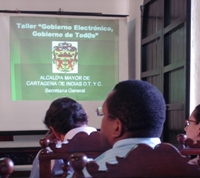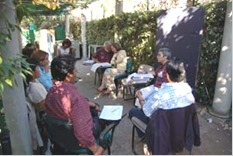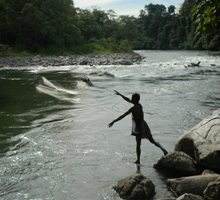Government Donors
Spain

- © M. Antonakopoulou
- Palace in Madrid-Spain
In 2007, Spain’s extrabudgetary donations to UNESCO showed a very substantial increase, elevating Spain’s ranking to UNESCO’s sixth largest donor in terms of extrabudgetary contributions.
UN Agencies, in general, constitute an interesting implementation mechanism for Spain’s technical cooperation to achieve its ambitious objectives. UN Agencies, in particular, are given priority in their efforts towards the achievement of the Millenium Development Goals.
Spain’s position in international development cooperation is further reinforced by the creation, end 2006, of the Millennium Goals Achievement Fund (MDG-F) through a € 528 million grant to be administered by UNDP, and aimed at reinforcing field cooperation among the UN agencies through joint project preparation and implementation.
Moreover, Spain launched, in 2005, its second Master Plan for International Co-operation, followed by a complex planning process which includes annual plans, geographic and sector strategies. The Master Plan established the premises strong political coherence and quality in development aid. The strategic framework of the plan reflects the objective of bringing the ration of Official Development Aid/Gross National Income to 0.5% by 2008, in the pace towards 0.7 % in 2012.
Spain is about to finalize five sectoral strategies in support of the Millenium Development Goals regarding indigenous people, health, education, gender, culture and development while strategies on e-governance, food security, humanitarian action, conflicts, security and peace as well as the environment are also established.
Decentralized cooperation through autonomous regions, local authorities and civil society is a notable feature of Spanish development cooperation. Mechanisms to coordinate among the different actors have been reinforced under the principles of cooperation, complementarity and quality.
Geographical distribution:
Spain has development cooperation programmes in many countries. While the cooperation with Latin America remains a priority, it should be noted that the Master Plan and Spain’s Annual Plans of International Cooperation give greater importance to Least Developed Countries and Africa. Special attention is given as well to the Mediterranean region, Arab countries and Asia. In Europe, Spanish aid focuses in Central and Eastern Europe.
Spain’s cooperation with UNESCO:
A Framework agreement on Funds-in-Trust cooperation was signed with Spain on 11 September 2002. This agreement structures a growing extrabudgetary cooperation with UNESCO which involves a very diverse range of funding ministries:
- Ministry of Education and Science has been providing, since 1980, regular contributions to the initiatives in the field of Education for All at UNESCO’s Office in Santiago. This ministry also has been providing support, since 2003, to the International Bureau of Education (IBE) in favor of Curriculum development in Africa;
- Ministry of Culture has been providing regular support to the World Heritage Centre. Until now, support has been mainly diverted to projects in Latin America and the Caribbean.
- Ministry of Public Administration provided assistance, in the eighties, to the Intergovernmental Informatics Programme. These funds are now managed under the Information for All Programme and dedicated to e-governance in Latin America.
- The Spanish Agency for International Development Cooperation (AECID - Agencia Española de Cooperación Internacional para Desarollo) has engaged, since 2005, substantial contribution in favor of Global Alliance for Cultural Diversity. Moreover, a project in favor of LIFE in Haiti was launched in 2006. Finally, in 2006 and 2007, UNESCO has received from AECID contributions for respectively € 2.5 millions and € 3.5 millions directed to highly strategic priorities in the field of Culture, Education, Science and Communication.
- Ministry for Environment launched, at the end of 2005, a series of projects in favor of Post Tsunami Assistance for Gunug Leuser National Park in Indonesia.
Focus of cooperation with UNESCO:
- education (teacher education and special education)
- cultural preservation – including the underwater cultural heritage
- cultural diversity
- information technology, notably activities related to e-governance
- Water
Related Links:
Spain's Ministry of Foreign Affairs and Cooperation
Spain's Ministry of Education and Science (Ministerio de Educacion y Ciencia)
Spain's Ministry of Culture (Ministerio de Cultura)
Spain's Ministry of Public Administration (Ministerio de Administraciones Publicas)
Spain's Ministry for Environment (Ministerio de Medio Ambiente)

- 19-11-2007
18 projects selected under the UNDP/Spain MDG Achievement Fund in the area of “Culture and Development”
More

Agreement between the Kingdom of Spain and UNESCO’s World Heritage Centre
More

Development of an E-Government Model for World Heritage Cities - Cartagena, Quito, and Cusco
More

Funds in trust co-operation for Global Alliance for Cultural Diversity
More

Innovemos Network, Education Innovations Network for Latin America and the Caribbean
More



